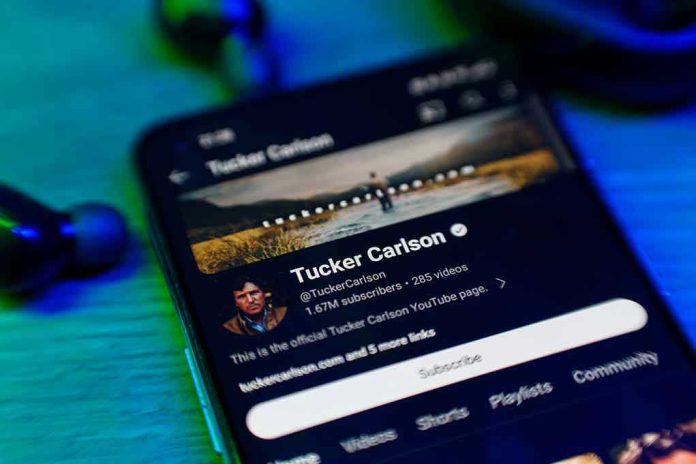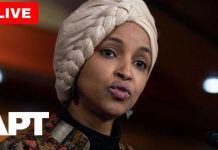
Tucker Carlson just delivered the most defiant defense of journalistic independence in years, telling critics to “buzz off” after interviewing one of America’s most controversial political figures.
Story Snapshot
- Carlson unapologetically defended his interview with Nick Fuentes on Megyn Kelly’s show
- He dismissed critics with a blunt “buzz off” while arguing for open dialogue with controversial figures
- The exchange highlights the growing divide between independent media and traditional journalistic gatekeeping
- Both former Fox News anchors now operate outside mainstream media constraints
The Unrepentant Defense of Controversial Journalism
Tucker Carlson appeared on Megyn Kelly’s show November 6, 2025, facing intense criticism for his recent interview with Nick Fuentes, widely characterized as a white nationalist. Rather than offering apologies or explanations, Carlson doubled down on his decision with characteristic defiance. He argued that understanding controversial viewpoints requires direct engagement, not avoidance.
The former Fox News host emphasized his commitment to independent journalism, suggesting that critics fundamentally misunderstand the difference between interviewing someone and endorsing their views. His “buzz off” response reflected a broader rejection of what he sees as attempted censorship by media gatekeepers and advocacy groups.
The Platform Versus Interview Debate
This controversy exposes the central tension in modern media between “platforming” extremists and conducting journalistic interviews. Critics argue that giving airtime to figures like Fuentes legitimizes their views, regardless of the interviewer’s intent. They contend that certain voices deserve no mainstream attention, as exposure inherently amplifies dangerous ideologies.
Carlson’s defenders counter that journalism requires engaging with uncomfortable realities and controversial figures to understand the full spectrum of American political thought. They argue that refusing to interview certain individuals creates information bubbles that ultimately harm public understanding. This philosophical divide reflects deeper disagreements about the role and responsibilities of independent media.
Independent Media’s Growing Influence
Both Carlson and Kelly now operate outside traditional media constraints, commanding massive audiences through independent platforms. This shift allows them editorial freedom impossible within corporate news structures, but also eliminates institutional guardrails that once governed such decisions. Their ability to conduct interviews without corporate oversight represents both opportunity and risk.
The economic model of independent media depends heavily on audience loyalty rather than advertiser approval, potentially encouraging more provocative content. This dynamic may incentivize interviews with controversial figures as attention-generating content, regardless of journalistic merit. Critics worry this creates perverse incentives that prioritize engagement over responsible reporting.
The Broader Implications for American Discourse
Carlson’s defiant stance signals a broader rejection of elite media consensus about acceptable discourse boundaries. His willingness to interview Fuentes, combined with his dismissal of criticism, represents a direct challenge to established journalistic norms. This approach resonates with audiences who feel excluded from mainstream media conversations.
The controversy ultimately reflects America’s ongoing struggle with free speech principles in an era of increased political polarization. While some view Carlson’s approach as necessary journalistic courage, others see it as dangerous normalization of extremist views. This fundamental disagreement about the boundaries of acceptable discourse will likely continue shaping American media landscape.
Sources:
The Megyn Kelly Show podcast (Apple Podcasts)



